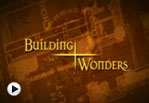Investigating Oral History
Support materials:
- English Dictionary
- Dictionary of Brizzle
- Floating Harbour glossary
- List of dockers nicknames
- Recording and listening devices
- Headphones
- Oral history transcripts
- Contemporary and Historical Ordnance Survey (OS) maps (Alan Godfrey Maps produce large scale plans of OS maps for towns throughout the UK and Ireland)
Questions to ask
- Listen to a short recording or read a transcript of someone talking about his or her life. Use this as a basis for discussing what is meant by the term oral or spoken history.
- Discuss the differences between written and oral histories.
- Discuss why oral histories are collected.
- Discuss what information can be gained from listening to oral histories e.g. accent, dialect, gender, emotions, information about a person’s life and experiences.
- Discuss what can’t be discovered from listening to oral histories (unless it is discussed as part of the interview) e.g. physical appearance, age, expressions and gestures.
- Discuss the importance of oral histories by setting them in the context of other sources of historical evidence e.g. books, maps, images, film, and artefacts.
- Discuss the reliability of oral histories as a historical source and what this can tell us about the importance of using more than one source of evidence.
- Discuss the kind of questions that might be asked to learn about someone’s experiences. What questions would it be inappropriate to ask?
An ideal starting point for studying oral history is for students to carry out oral history interviews in class with their peers. Divide the class into pairs or small groups and allow them to interview each other using a list of appropriate subjects and questions discussed and devised by the class.
After the activity students should have the opportunity to discuss what they have learnt.






